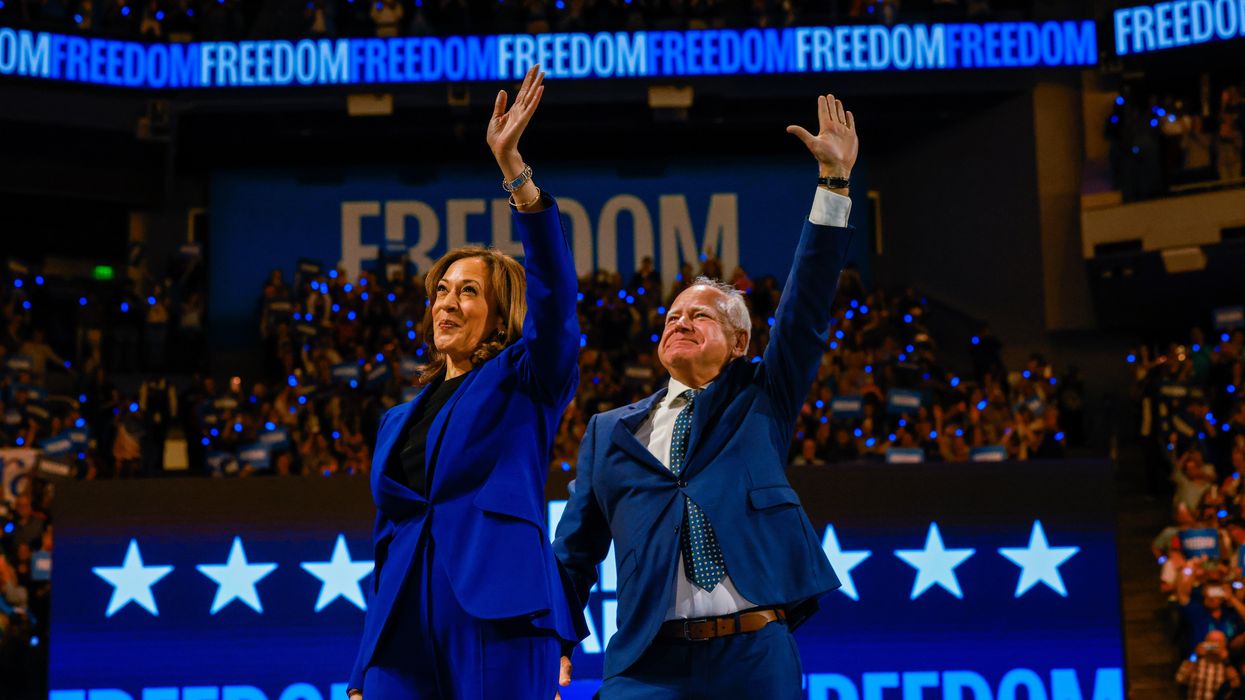S.E. Cupp is the host of "S.E. Cupp Unfiltered" on CNN.
After covering six presidential elections and five midterm elections for more than 20 years, I’ve long believed that there are many reasons why a person votes the way they do. And all are valid.
Many vote on pocketbook issues, and, especially in times of economic pain, who could blame them for prioritizing things like gas prices over esoteric and intellectual concerns about democracy or limited government? Democrats, for their part, finally seem to be acknowledging that the economy may technically be strong, but stats can’t compete with feelings.
Others may be perennial single-issue voters. I’ve met plenty of voters on the left and the right who go to the polls with only abortion in mind, or gun control. Many have also voted in protest of events overseas — of the war in Iraq, for example, or now the war in Gaza. Who’s to tell them those aren’t worthwhile causes?
Others still vote strictly along partisan lines — Democrat or Republican down the line — because they believe that their party generally has the better solutions, or because they want their party to be in a position to implement their policies.
And some vote because of representation — they see themselves reflected in someone running for office: a man raised the way they were, a woman who’s confronted similar challenges, someone who’s close to their age, or a product of immigrants like their parents, or someone of their faith.
But there’s another reason people sometimes vote, and it’s more intangible: They want to be a part of something.
I talked to countless Bernie Sanders supporters in 2016, when he gave Hillary Clinton a run for her considerable money. For them, she was a corporation, whereas he was a cause. He was promising something so much bigger — a movement, a revolution. He meant something to voters.
Similarly that year, voters flocked to Donald Trump because he was unlike anything they’d seen before. He was promising an end of the status quo, a return to the America they missed, a new kind of politics with a new kind of leader. With Trump they didn’t just get to reject Democrats, but Republicans, too. He transcended politics.
The last month of this election, culminating in the Democratic National Convention in Chicago, has revealed a campaign that’s captured voters in a way that feels truly intangible.
The excitement and energy inside the Harris/Walz campaign is new — it simply wasn’t there before President Biden stepped down. And it’s zapped all the energy out of the Trump/Vance campaign, which just a month ago seemed invincible.
It’s not just about policy. Vice President Kamala Harris and Minnesota Gov. Tim Walz haven’t laid out much in the way of specifics. But it’s not just about issues. The issues most Americans are concerned about — the economy and immigration — don’t actually inure to the benefit of Democrats.
And it isn’t just about representation. While many people are presumably excited to vote for the first woman of color to be president, unlike Trump, Harris and Walz are leaning into their identities to expand their coalitions, not shrink and condense them.
It’s more than all that. Voters see something happening, something refreshing, exciting, and new. And they want to join the party.
They want to be a part of Harris’ positive vision of “Freedom. Opportunity. Compassion. Dignity. Fairness. And endless possibilities.”
They want Walz’s happy version of patriotism: “We’re all here tonight for one beautiful, simple reason: We love this country.”
They want to celebrate, not mourn.
And while one side is partying, the other side is plotting. Trump and Vance are plotting destruction, revenge, retribution. They’re plotting to roll back women’s rights, voting rights, immigrants’ rights. They’re plotting to dismantle American institutions, and to reward insurrectionists who already tried.
And they’re mourning the death of a country most Americans still love — an America, Trump will tell you, that’s overrun by “bloodshed, chaos and violent crime,” a country heading into “servitude and ruin.”
It’s an America Trump insists is “in decline, a failing nation,” and “a Communist country.”
Who’d choose to live in this kind of depressing, dystopian darkness when you could choose to hang with the party of joy, light, optimism and confidence?
Vibes are no substitute for substance. Harris and Walz will have to get specific about their agenda. But what’s happening on the left is about more than vibes. It’s becoming a movement that people want to be a part of.
And, as Trump is finding out, that’s very hard to compete with.
©2024 S.E. Cupp. Distributed by Tribune Content Agency, LLC.




















 From left to right: Gabriel Cardona-Fox, Bud Branch, Joe Concienne
From left to right: Gabriel Cardona-Fox, Bud Branch, Joe Concienne 